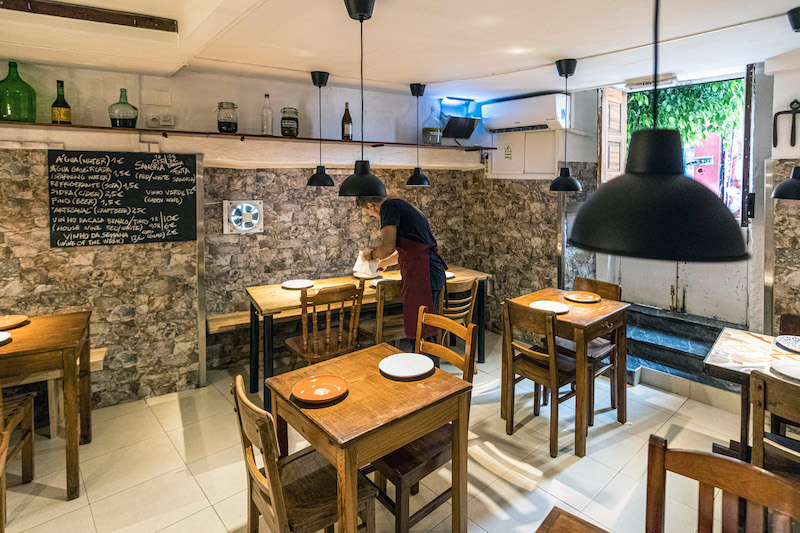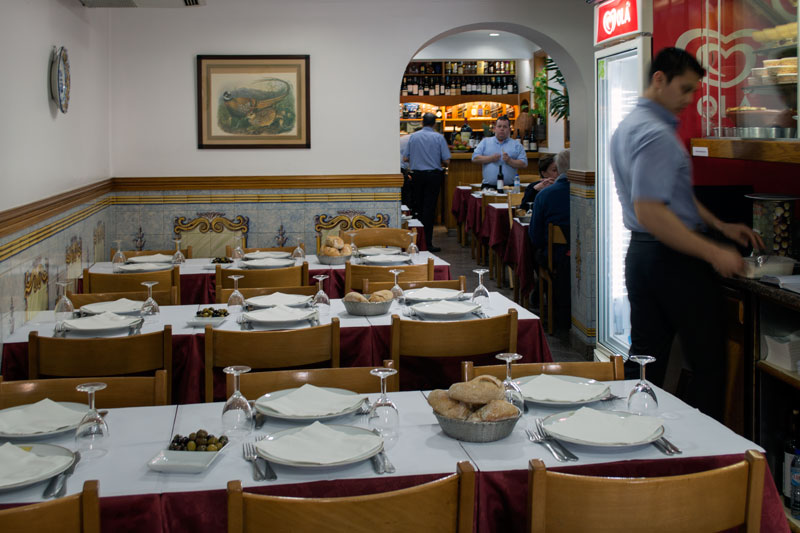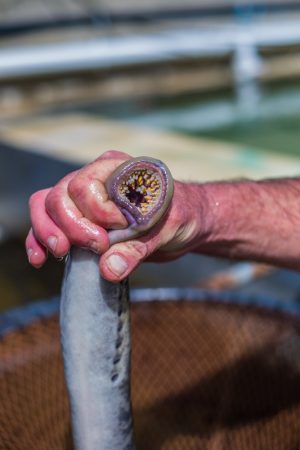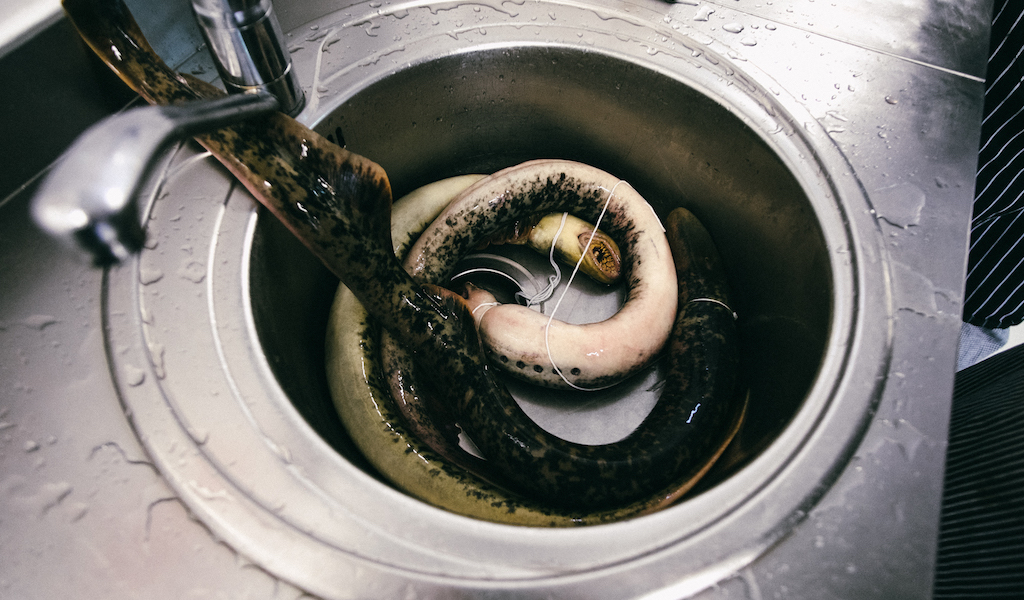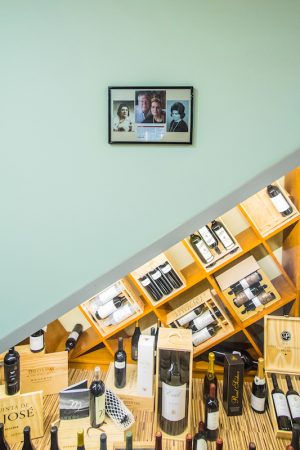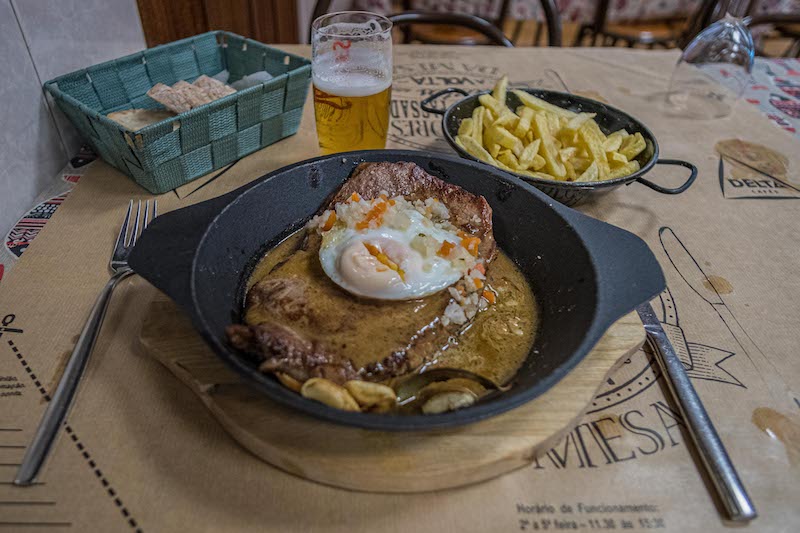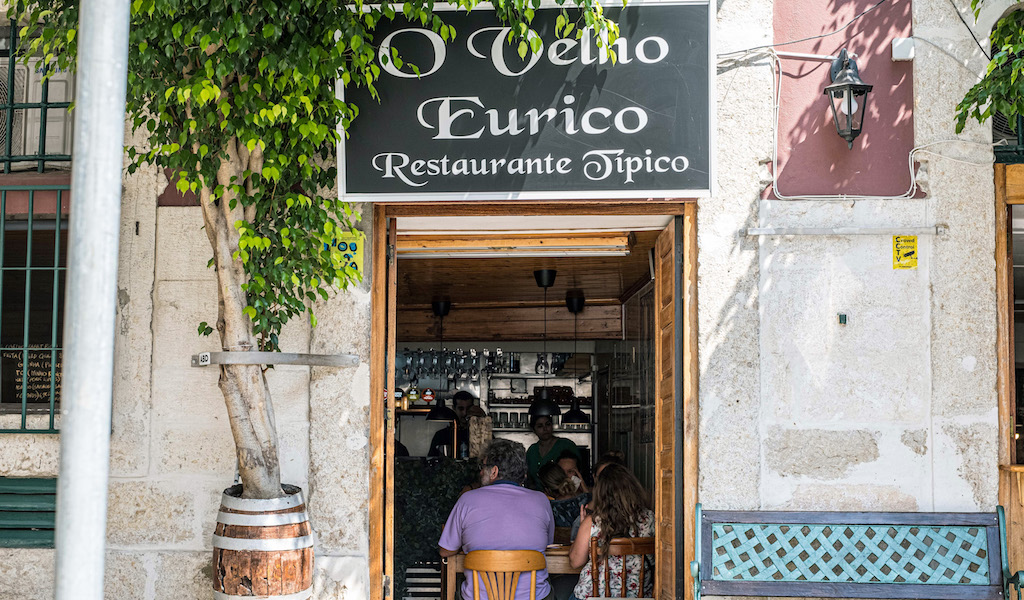We can't find the internet
Attempting to reconnect
Something went wrong!
Hang in there while we get back on track
Search results for "Tiago Pais"
Lisbon
O Velho Eurico: Family Inheritance
Zé Paulo Rocha was born in September, 22 years ago. By December of that year, he was already sleeping on top of a chest freezer in his parents’ tasca, right behind Rossio, one of Lisbon’s main squares. Like so many tasca owners in the Portuguese capital, they had come to Lisbon from northern Portugal’s Minho region years before. As a young teenager, Zé Paulo used to help with the service while his mother cooked and his father ran the business behind the counter, the traditional family tasca format. His professional fate was sealed from the beginning.
Read moreLisbon
Tasca Tables: Fish First at O Pitéu da Graça
One of Lisbon’s best views is just steps away from Largo da Graça in Saint Andre, one of the city’s seven hills. The famous overlook offers views of most of the city and even some of the Tejo river. Most days it’s filled with a mix of tourists making good use of their selfie sticks, wanderers minding their own business and street musicians busking for small change. But locals – or, at least, locals who like to eat well – prefer to hang out a few meters back, at one of the neighborhood’s iconic restaurants. O Pitéu da Graça could also be described as having an excellent view – but only if you like looking at fish. Yes, the thing to see here is the menu’s crowded fish section.
Read moreLisbon
Building Blocks: Lamprey, Portugal’s Monstrously Delicious Fish
These days, plenty of traditional restaurants in Lisbon display in their windows a homemade sign reading “Há Lampreia.” We have lamprey. This simple message is usually illustrated by a pixelated photograph of said creature, almost always taken from Google. While lamprey, an eel-like fish, is one of the ugliest in mother nature’s portfolio, many people are delighted to look at it. That’s because lamprey, the ingredient, has a lot of fans in Portugal, especially in the areas around the rivers (Minho in the north, and Tejo in the center) where it is usually caught during its spawn migration period, from January to April.
Read moreLisbon
Building Blocks: Lamprey, Portugal’s Monstrously Delicious Fish
These days, plenty of traditional restaurants in Lisbon display in their windows a homemade sign reading “Há Lampreia.” We have lamprey. This simple message is usually illustrated by a pixelated photograph of said creature, almost always taken from Google. While lamprey, an eel-like fish, is one of the ugliest in mother nature’s portfolio, many people are delighted to look at it. That’s because lamprey, the ingredient, has a lot of fans in Portugal, especially in the areas around the rivers (Minho in the north, and Tejo in the center) where it is usually caught during its spawn migration period, from January to April.
Read morePorto
Senhor Zé: Back Out of Retirement
“Where to eat in Porto?” Google search this sequence of five words and a multitude of articles listing restaurants and eateries will naturally come up as a result. Some of those suggestions – the trustworthy ones, at least – will mention Casa Nanda. It’s a fair choice: Casa Nanda is, indeed, one of the most traditional and historic joints in town. What most listings won’t mention, though, is that the couple who founded it and were its driving force are now working somewhere else.
Read moreLisbon
Tasca Tables: Deeply Local at Adega da Bairrada
Despite being one of the liveliest of Lisbon’s neighborhoods, Alvalade doesn’t appear in most city guides. Maybe because of the location, north of downtown and next to the airport, with planes taking off and landing being part of the usual sights and sounds. Maybe because it is mainly a residential area, with few – if any – hotels available nearby. Maybe because it is seen as a strictly local neighborhood, with no museums, elevated viewpoints or places to listen to fado. But despite all that, it has a lot to offer, especially to those who want to eat, shop or simply roam the streets with the locals.
Read moreLisbon
O Velho Eurico: Family Inheritance
Zé Paulo Rocha was born in September, 22 years ago. By December of that year, he was already sleeping on top of a chest freezer in his parents’ tasca, right behind Rossio, one of Lisbon’s main squares. Like so many tasca owners in the Portuguese capital, they had come to Lisbon from northern Portugal’s Minho region years before. As a young teenager, Zé Paulo used to help with the service while his mother cooked and his father ran the business behind the counter, the traditional family tasca format. His professional fate was sealed from the beginning.
Read more